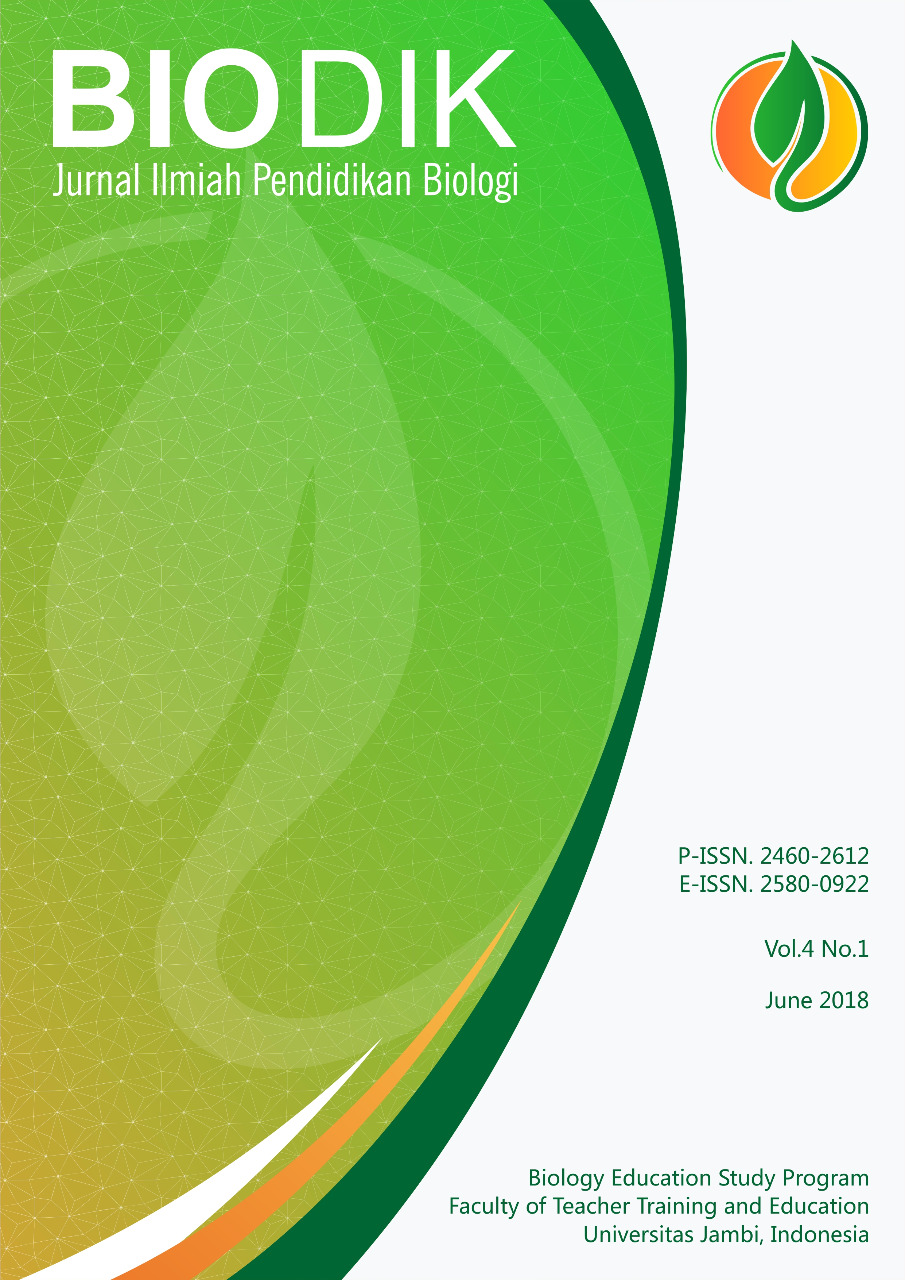Needs Analysis in the Problem Based Learning (PBL) Model Tools and Problems Regarding 7th Grade Students’ Science Learning Outcome at SMPN 2 Bongan
DOI:
https://doi.org/10.22437/bio.v4i1.5508Abstract
This study aims to: analyze the needs of teachers, feasibility and effectiveness in the development of learning tools based on Problem Based Learning (PBL) model to improve 7th grade students' Science learning outcomes in SMPN 2 Bongan. The results of the observation is in the form of teacher needs analysis instrument analyzed using qualitative descriptive. Observation results obtained that the use of Problem Based Learning model in Science learning process had not been optimally implemented in schools, problems obtained in teachers are: 1) teachers still had difficulties in understanding and composing learning tools, 2) teachers still had difficulties in determining the appropriate learning model, 3) teachers were still less creative, 4) lack of facilities and infrastructure provided in schools for teachers to be more innovative in learning. Problems obtained in students are: 1) low mastery on the subject matter, students were only able to answer the problem of C1 to C3 thinking levels, 2) Science learning only embraced the concept so that students felt lack of interest in learning, 3) students were not engaging in learning, 4) low level of student learning outcomes.
Downloads
Downloads
Published
Versions
- 2018-06-01 (1)
- 2018-06-01 (1)
How to Cite
Issue
Section
License
Copyright Notice
Authors who publish with Biodik : Jurnal Ilmiah Pendidikan Biologi agree to the following terms:
- For all articles published in Biodik : Jurnal Ilmiah Pendidikan Biologi, copyright is retained by the authors and grant the journal right of first publication with the work simultaneously licensed under a Creative Commons Attribution-ShareAlike 4.0 International Licensethat allows others to share the work with an acknowledgment of the work's authorship and initial publication in this journal.
- Authors are able to enter into separate, additional contractual arrangements for the non-exclusive distribution of the journal's published version of the work (e.g., post it to an institutional repository or publish it in a book), with an acknowledgment of its initial publication in this journal.
- Authors are permitted and encouraged to post their work online (e.g., in institutional repositories or on their website) prior to and during the submission process, as it can lead to productive exchanges, as well as earlier and greater citation of published work (See The Effect of Open Access).

















